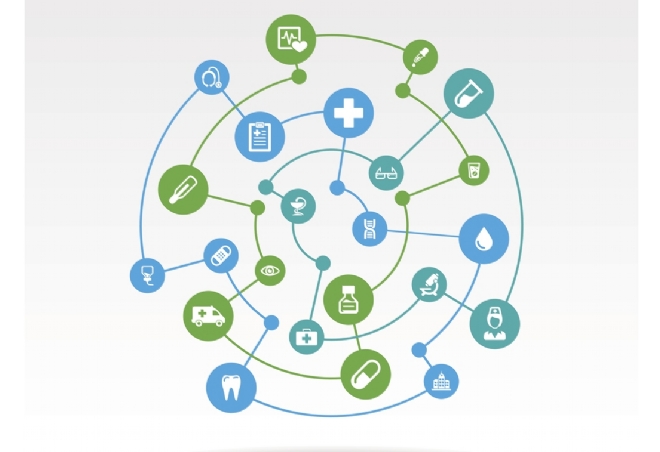New Year Brings New Health Care Legislation in Massachusetts

On January 1, 2021, Massachusetts Governor Charlie Baker signed S.2984, An Act Promoting a Resilient Health Care System That Puts Patients First, which includes long-awaited provisions addressing telehealth. In addition, the legislation addresses a wide range of other topics, including COVID-19 testing and treatment coverage, “surprise billing,” and scope of practice for nurse practitioners and others. A summary of some of the key provisions follows.
Telehealth
This legislation follows on multiple prior attempts to enact legislation to provide more clarity and support the utilization of telehealth in Massachusetts, and finally outlines what constitutes telehealth under Massachusetts law, establishes payment parity for some (but not all) telehealth services in Massachusetts, and confirms that coverage parity is mandated in the Commonwealth. The legislation builds on guidance from the Massachusetts Board of Registration in Medicine earlier this year clarifying that a practitioner-patient relationship may be established via telehealth in Massachusetts, which we wrote about here.
Defining Telehealth
One of the most significant elements of the legislation is its sweeping definition of telehealth, which includes “synchronous or asynchronous audio, video, electronic media or other telecommunications technology, including, but not limited to: (i) interactive audio-video technology; (ii) remote patient monitoring devices; (iii) audio-only telephone; and (iv) online adaptive interviews, for the purpose of evaluating, diagnosing, consulting, prescribing, treating or monitoring of a patient’s physical health, oral health, mental health or substance use disorder condition.”
This expansive definition includes traditional telehealth modalities, such as “video visits” (i.e., synchronous audio-video interactions) and remote patient monitoring, as well as other modalities such as audio-only telephone treatment and “online adaptive interviews.” The inclusion of “online adaptive interviews” stands out in particular, as furnishing professional services through this modality can attract scrutiny in some states. Also known as “smart questionnaires,” this clinical tool often involves asking a series of questions to assess a patient’s symptoms, and then using an algorithm developed by physicians and other medical professionals to inform appropriate follow-up questions to assist clinicians gathering symptoms and making diagnoses.
Also significant is the fact that the list of modalities above is non-exhaustive and therefore implicitly permits the utilization of other forms of technology not listed or which may not yet exist. This approach mirrors that of the Centers for Medicare & Medicaid Services (CMS) in the Physician Fee Schedule process in recent years concerning its definitions and examples of digital health technology.
Coverage and Reimbursement
Massachusetts insurers must now provide coverage parity for telehealth services, and payment parity for telehealth services until 90 days after the end of the governor’s declaration of a state of emergency regarding the COVID-19 pandemic. This means that Massachusetts insurers must cover a service that is provided via telehealth if the same service is covered when it is provided in-person and may be appropriately provided through the use of telehealth.
Massachusetts insurers are required to pay in-network providers the same amount for services furnished via telehealth and services that are furnished in-person until 90 days after the COVID-19 state of emergency is lifted. The Massachusetts state of emergency was enacted March 10th, 2020, and remains in effect until it is rescinded. Payment parity for tele-behavioral health services provided by in-network providers is now required permanently, and for at least two years for primary care and chronic disease management services.
The Massachusetts Health Policy Commission (HPC), in consultation with Center for Health Information and Analytics (CHIA), the Executive Office of Health and Human Services, and the Division of Insurance, will issue a report within two years of the legislation’s effective date on the use of telehealth services and the effect on health care access and system cost, including assessing any barriers, and provide recommendations on ways to expand use of services via telehealth, including provision of services by professionals licensed and residing in other states.
Proxy Credentialing
Proxy credentialing is an important tool to healthcare provider facilities looking to leverage the services of experts and other professionals located at a distant site, i.e., another facility. Through applicable Conditions of Participation (“CoPs”), CMS requires Medicare-participating hospitals to implement credentialing processes which clinicians must complete to gain admission to the facility’s medical staff. Proxy credentialing enables the originating site facility – i.e., the facility at which the patient is located – to rely upon the credentialing process of the distant site, i.e., the facility where the physician is located – to credential the distant site physician as required to treat patients at the originating site facility. Both CMS and the Joint Commission allow the use of proxy credentialing.
In states where proxy credentialing is permitted, it is a tremendous tool to expand access to care provided via telehealth, particularly in rural or medically underserved communities. Before this legislation was passed, it was unclear whether proxy credentialing was permitted in Massachusetts. This legislation amends Massachusetts law to make clear that proxy credentialing processes which satisfy applicable CMS CoPs are legal in the Commonwealth.
COVID-19 Testing and Treatment
Massachusetts insurers (including MassHealth) are required to cover all COVID-19 related emergency, inpatient, and cognitive rehabilitation services, at both in network and out-of-network providers, without any cost-sharing requirement for the patient. Massachusetts insurance carriers must also cover medically necessary outpatient COVID-19 testing. This includes testing for asymptomatic individuals, pursuant to guidelines to be established by the Secretary of Health and Human Services within 30 days of the effective date.
The legislation also requires the HPC, in collaboration with CHIA, to analyze and report on the effects of the COVID-19 pandemic on the Commonwealth’s health care delivery system. The report must address a number of topics, including an analysis of health care disparities that exist due to economic, geographic, racial or other factors.
“Surprise Billing” By Out-of-Network Providers
The legislation incorporates provisions to address so-called “surprise billing,” where a patient may not be aware that they are receiving services outside of their insurance carrier’s network and receive a “surprise” bill for costs not covered under the applicable policy.
Among other things, upon scheduling a non-emergency procedure, admission, or service, a health care provider must disclose certain information to a patient, including whether the provider is in-network with the patient’s health benefit plan, and if in-network the patient’s rights with respect to accessing information regarding the allowed amount, any facility fees, and applicable out-of-pocket-costs. If the provider is out-of-network, the provider must provide information on the provider’s charge and amount of facility fees, and inform that the patient that they will be responsible for amounts not covered by their plan and they may be able to obtain the service at a lower cost from an in-network provider. A health care provider referring to another provider also has certain disclosure obligations. Non-compliance may result in financial penalties of up to $2,500 per instance.
In addition, the Secretary of Health and Human Services, in consultation with the HPC, CHIA, and the Division of Insurance, is required to develop a report and make recommendations for establishing a noncontracted, out-of-network commercial payment rate for both emergency services and non-emergency services by September 1, 2021.
The concerns prompting these new disclosure requirements have gained national attention over the past few years. Last month, federal lawmakers passed the No Surprises Act, as part of the larger year-end spending and COVID relief package. Whereas the Massachusetts law focuses on transparency, the No Surprises Act also aims to address payment dispute processes and other patient protection mechanisms, such as directly prohibiting surprise bills and requiring health plans to hold patients harmless or otherwise limit the amount owed under certain circumstances. The Act instructs the Secretary of the U.S. Department of Health and Human Services (HHS), along with the Secretaries of Labor and Treasury to establish rulemaking surrounding the arbitration and payment process by July 2021. The federal surprise billing ban is set to go into place Jan 1, 2022.
Scope of Practice Expansion
The legislation significantly expands the scopes of practice of advanced practice nursing, including nurse practitioners, nurse anesthetists, and psychiatric nurse mental health specialists, permitting such professionals to practice independently, after a two-year period of supervision by either a Massachusetts-licensed physician or another nurse practitioner, nurse anesthetist, or psychiatric nurse mental health clinical specialist with independent practice authority. The Board of Registration in Nursing will promulgate advanced practice nursing regulations that govern the provision of advanced practice nursing services. This follows on a prior temporary suspension of supervision requirements for certain practitioners pursuant to an executive order issued on March 26 during the declared state of emergency related to the COVID-19 pandemic.
In addition, the legislation expands the scope of practice for optometrists, including the ability to treat glaucoma with certain topical pharmaceutical agents (subject to certain conditions).
Cancer Clinical Trials – Reimbursement of Travel and Ancillary Costs
The legislation includes helpful new provisions regarding offering reimbursement of travel and ancillary costs to a subject in a cancer clinical trial. Reasonable costs incurred by a person in connection with their participation in a cancer clinical trial, including travel and lodging expenses, are expressly deemed to not be inducement or otherwise exerting undue influence on the person’s decision to participate in the trial. Certain requirements apply as safeguards, including relevant content in the informed consent and requiring such reimbursement plans to be reviewed and approved by an institutional review board (IRB) or independent ethics committee.
In addition to the topics addressed above, the new health care legislation addresses other topics not addressed in this summary, including payment rates for certain community hospitals, eliminating barriers for MassHealth members seeking care at an urgent care facility, and establishing a rare disease advisory council.
For further information, please contact David Schumacher, Amy Joseph, Jeremy Sherer, Ryan Cuthbertson, or Angela Benoit in the firm’s Boston office.
